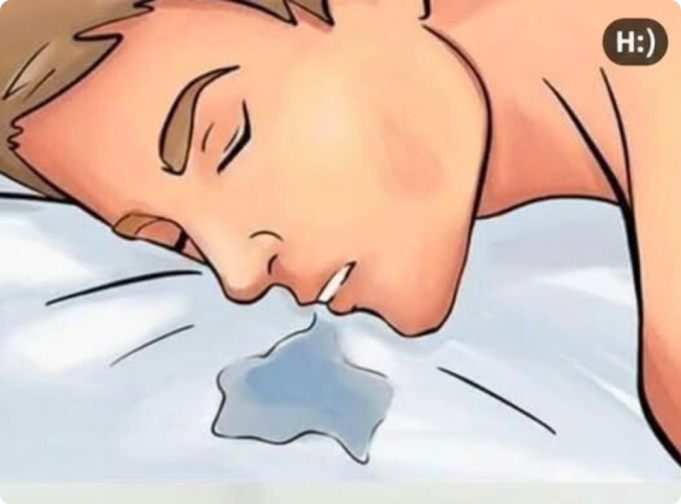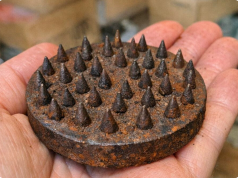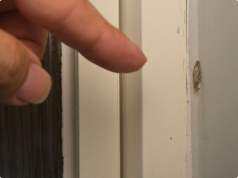Waking up to a damp pillow is more common than you think. For many, drooling during sleep is just a harmless quirk — maybe you slept on your side, had a long day, or simply relaxed too deeply. But if it happens frequently, excessively, or out of the blue, it could be more than just a messy night.
Persistent nighttime drooling — medically known as sialorrhea — can be a silent warning sign of an underlying health condition. While occasional drooling is normal, chronic drooling deserves attention — especially when paired with other symptoms.
Here are 6 diseases and conditions that could be behind your nightly drool — and what you should do about them.
1. Sleep Apnea – The Breathing Blockage Connection
What It Is:
Sleep apnea is a serious sleep disorder where breathing repeatedly stops and starts during the night — most commonly obstructive sleep apnea (OSA), caused by a blocked airway.
Why It Causes Drooling:
When your airway is partially blocked, you’re more likely to breathe through your mouth. This disrupts the normal swallowing reflex, causing saliva to pool and leak out while you sleep.
Other Warning Signs:
- Loud, chronic snoring
- Gasping or choking during sleep
- Waking up with a dry mouth or sore throat
- Daytime fatigue, even after a full night’s rest
- Morning headaches and brain fog
What to Do:
If you suspect sleep apnea, see a doctor for a sleep study. Treatments like CPAP therapy, lifestyle changes, or dental devices can restore healthy breathing — and stop the drool.
2. Gastroesophageal Reflux Disease (GERD)
What It Is:
GERD occurs when stomach acid flows back into the esophagus, irritating the lining and triggering a host of uncomfortable symptoms.
Why It Causes Drooling:
Your body’s natural response to acid reflux is to produce more saliva, which acts as a buffer to neutralize the acid. This excess saliva can overflow while you’re lying down, especially if you sleep on your back.
Other Symptoms:
- Heartburn or a sour taste in the mouth
- Regurgitation of food or liquid
- Chronic cough or hoarseness
- Chest pain or throat irritation
What to Do:
Elevate your head while sleeping, avoid heavy meals before bed, and steer clear of spicy, fatty, or acidic foods. If symptoms persist, your doctor may recommend proton pump inhibitors (PPIs) or other medications.
3. Neurological Disorders – When the Brain Can’t Signal Properly
What They Are:
Conditions like Parkinson’s disease, ALS (Lou Gehrig’s disease), cerebral palsy, or stroke can impair the nerves and muscles involved in swallowing.
Why They Cause Drooling:
These disorders can weaken or delay the swallowing reflex, so saliva builds up in the mouth and spills out during sleep — even if you’re producing a normal amount.
Other Symptoms:
- Tremors or muscle stiffness
- Slurred speech
- Difficulty chewing or swallowing (dysphagia)
- Facial weakness or drooping
- Unexplained weight loss
What to Do:
If you notice drooling along with any neurological symptoms, consult a neurologist. Early diagnosis can lead to better management and improved quality of life.
4. Allergies or Sinus Issues – The Mouth-Breathing Trap
What They Are:
Chronic nasal congestion from allergies, sinus infections, or deviated septum can block your nasal passages, forcing you to breathe through your mouth.
Why It Causes Drooling:
Mouth breathing dries the throat but can also overstimulate saliva glands. Combined with poor swallowing during sleep, this leads to drooling.
Other Symptoms:
- Stuffy or runny nose
- Postnasal drip
- Frequent sneezing or sinus pressure
- Dry throat in the morning
What to Do:
Treat allergies with antihistamines or nasal corticosteroids. For chronic sinus problems, see an ENT (ear, nose, and throat) specialist. Clearing your airways can stop the drool — and improve your sleep.
5. Medication Side Effects – The Hidden Culprit
What It Is:
Certain medications can increase saliva production as an unintended side effect.
Common Offenders:
- Antipsychotics (e.g., clozapine)
- Medications for Alzheimer’s (e.g., cholinesterase inhibitors)
- Some anti-nausea drugs
- Seizure medications
Why It Causes Drooling:
These drugs can overstimulate the salivary glands, leading to excess saliva that’s hard to swallow — especially during sleep.
What to Do:
Review your medications with your doctor. Never stop taking prescribed meds on your own — but ask if dosage adjustments or alternatives are available.
6. Dental or Oral Health Issues – It Starts in the Mouth
What They Are:
Misaligned teeth, ill-fitting dentures, gum disease, or oral infections can interfere with your bite and swallowing mechanics.
Why They Cause Drooling:
Pain, discomfort, or misalignment can make it harder to close your mouth fully or swallow properly, especially when relaxed during sleep.
Other Symptoms:
- Tooth or gum pain
- Bad breath (halitosis)
- Swollen or bleeding gums
- Difficulty chewing
What to Do:
Schedule a dental checkup. Regular cleanings, proper oral hygiene, and correcting dental issues can make a surprising difference — even in how you sleep.
When to See a Doctor
Occasional drooling? Normal.
But see a healthcare provider if you have:
✅ Frequent, excessive drooling that soaks your pillow
✅ Difficulty swallowing or choking during meals
✅ Muscle weakness, slurred speech, or tremors
✅ Daytime fatigue or breathing issues
✅ Drooling that started suddenly or worsened over time
Final Thoughts: Your Body Is Talking — Are You Listening?
Drooling while sleeping isn’t always a red flag — but when it becomes a pattern, it might be your body’s way of sounding an alarm.
From sleep apnea to neurological conditions, the root cause could be treatable — but only if you pay attention.
So don’t just wipe the pillow and move on.
Ask:
“Is this just a habit… or a symptom?”
Because sometimes, the quietest signs — like a little drool — can lead to the loudest answers.
🩺 Listen to your body. It’s trying to tell you something.






